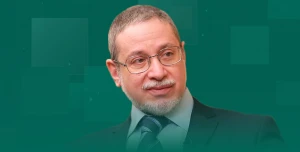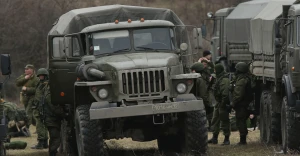
World wheat prices jump after strikes on Russian ships in Black Sea
Wheat prices rise following Ukraine using maritime drones to disable a Russian oil tanker and a warship. At the same time, it has jeopardized a key export route from Russia through the Black Sea
Bloomberg reported the information.
The outlet noted that Russia, the largest shipper of wheat, transports most of its grain by water. This year, it plans to have a second consecutive record harvest and sell it on the world market.
"The risk in the Black Sea is increasing by the day and any threat to Russian exports is much more potent than a threat to the Ukrainian export corridor," said Ole Houe, chief executive officer of broker and adviser IKON Commodities.
On Monday, wheat futures on the Chicago Mercantile Exchange rose by 3.4% to USD 6.545 per bushel, while in Sydney they were trading at USD 6.4725 after Ukraine attacked a Russian naval vessel. At the same time, traffic in the port of Novorossiysk was stopped for several hours.
The outlet writes that Kyiv's decision to start a war with Russia in the Black Sea came after Vladimir Putin abandoned the UN-brokered grain deal on July 17 and a concerted missile campaign against Ukrainian ports. As a result, Ukraine's grain exports dropped significantly, while Russia's were unaffected.
The Black Sea route also accounts for 15% to 20% of the oil that Russia sells daily on world markets, and it is also the main transit corridor for Kazakh oil.
Wheat futures are still down nearly 20% this year on prospects of bumper harvests from key exporters and still a large global stockpile.
Russia's termination of the grain deal
On July 16, the last ship loaded with Ukrainian agricultural products under the initiative left the port of Odesa. On 17 July, Russia announced the termination of the grain deal. In response, Volodymyr Zelenskyy said that it was necessary to continue using the grain corridor even despite Russia's withdrawal from the agreement. And Kuleba began urgent consultations at the UN.
The White House condemned Russia's withdrawal from the grain deal, which played a crucial role in reducing global food prices.
On 18 July, Russian presidential spokesman Dmitry Peskov said there were "certain risks" for parties trying to resume the Black Sea Grain Initiative without Russia's participation.
European Commission President Ursula von der Leyen said that it was critical to restore transport links across the Black Sea to provide food to the world's most vulnerable countries and to preserve the ability to export Ukrainian goods.
On 19 July, it was reported that Ukraine was considering transporting food as part of the grain initiative through the territorial waters of Bulgaria and neighbouring Romania.
At the same time, the Russian Ministry of Defence issued a statement threatening ships heading to Ukraine's Black Sea ports.
On July 21, Recep Tayyip Erdogan said he wanted to discuss the extension of the grain deal with his Russian counterpart Vladimir Putin and expressed confidence that it will work again.
On July 22, President of Ukraine Volodymyr Zelenskyy addressed NATO Secretary General Jens Stoltenberg with a proposal to immediately convene the NATO-Ukraine Council due to the security crisis in the Black Sea.
Volodymyr Zelenskyy wrote about his conversation with Stoltenberg on Telegram. It is noted that Zelenskyy and Stoltenberg discussed the implementation of the agreements reached during the Vilnius Summit of the Alliance, as well as further steps towards Ukraine's integration into NATO.
On July 25, the GUR released a report to the Russian leadership, which outlined the technologies used to prevent grain exports from Ukraine, indicating that the "grain deal" was deliberately disrupted.
On July 26, the UK Ministry of Defense reports that Russia has deployed a modern corvette, the Sergei Kotov, in the southern Black Sea to intercept merchant ships at sea. It patrols the transportation route between the Bosporus and Odesa.
Later, it became known that Russia was preparing aircraft and ships to block the Black Sea, detect and destroy ships.
Russian President Vladimir Putin announces that after unilaterally withdrawing from the Black Sea Grain Initiative, Russia is ready to replace Ukrainian grain and start supplying its own grain to African countries free of charge.
On July 30, during the Sunday Angelus prayer in the Vatican, Pope Francis called on the Russian side to renew the Black Sea Grain Agreement, which allowed Ukraine to safely transport grain. Later, President Volodymyr Zelenskyy said that he considered the Pope's call to Russia important.
On Sunday, July 30, despite the completion of the grain deal, three civilian cargo ships of foreign origin passed the Russian blockade in the Black Sea and anchored in one of Ukraine's grain ports in the Danube Delta.
On August 2, the United States said it had information that Russia was interested in resuming negotiations on the agreement, which ensured safe Black Sea grain exports.
On August 2, media reported that South African countries were trying to persuade Russia to return to negotiations on an agreement on the safe export of grain from Black Sea ports, which it abandoned last month.
The head of the Defense Ministry's Main Directorate of Intelligence, Kyrylo Budanov, said that Ukraine would continue to export grain despite Russia's objections. Certain measures are already being taken.
- News















































